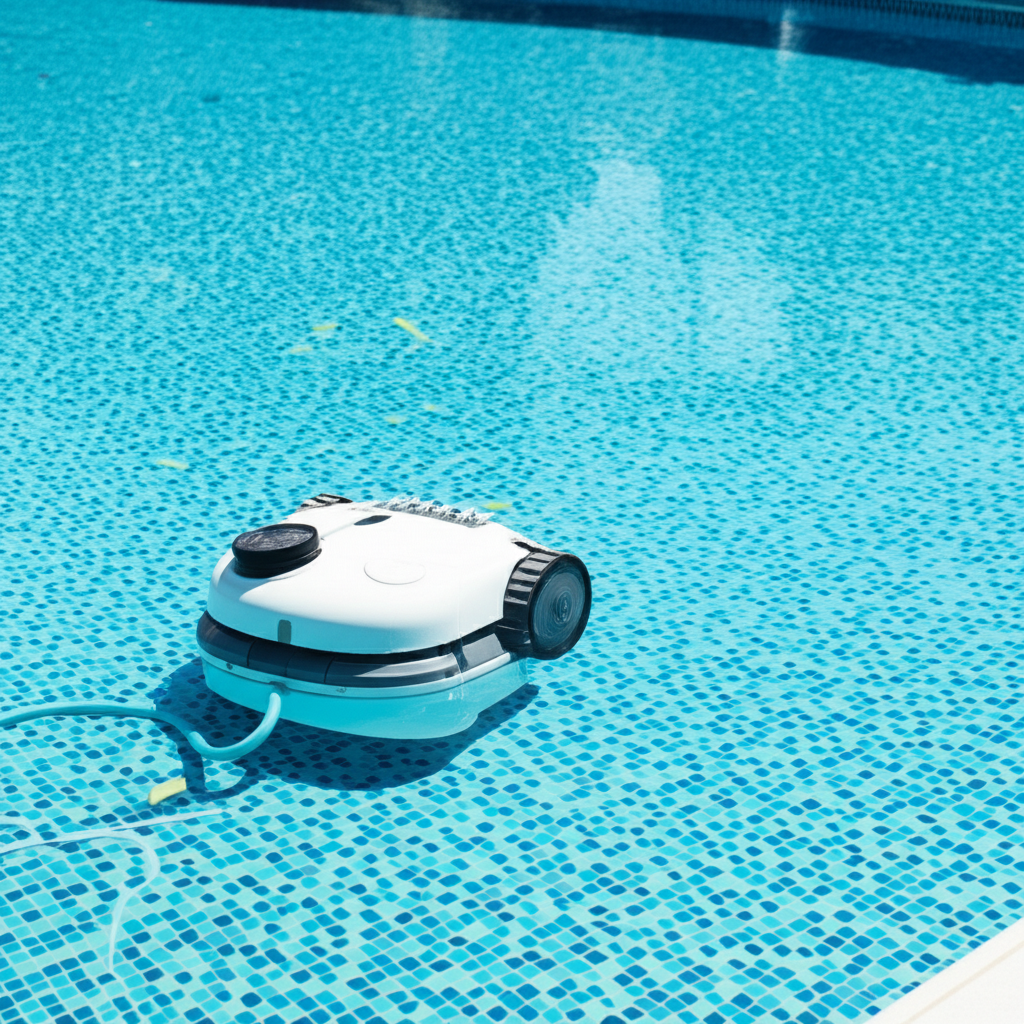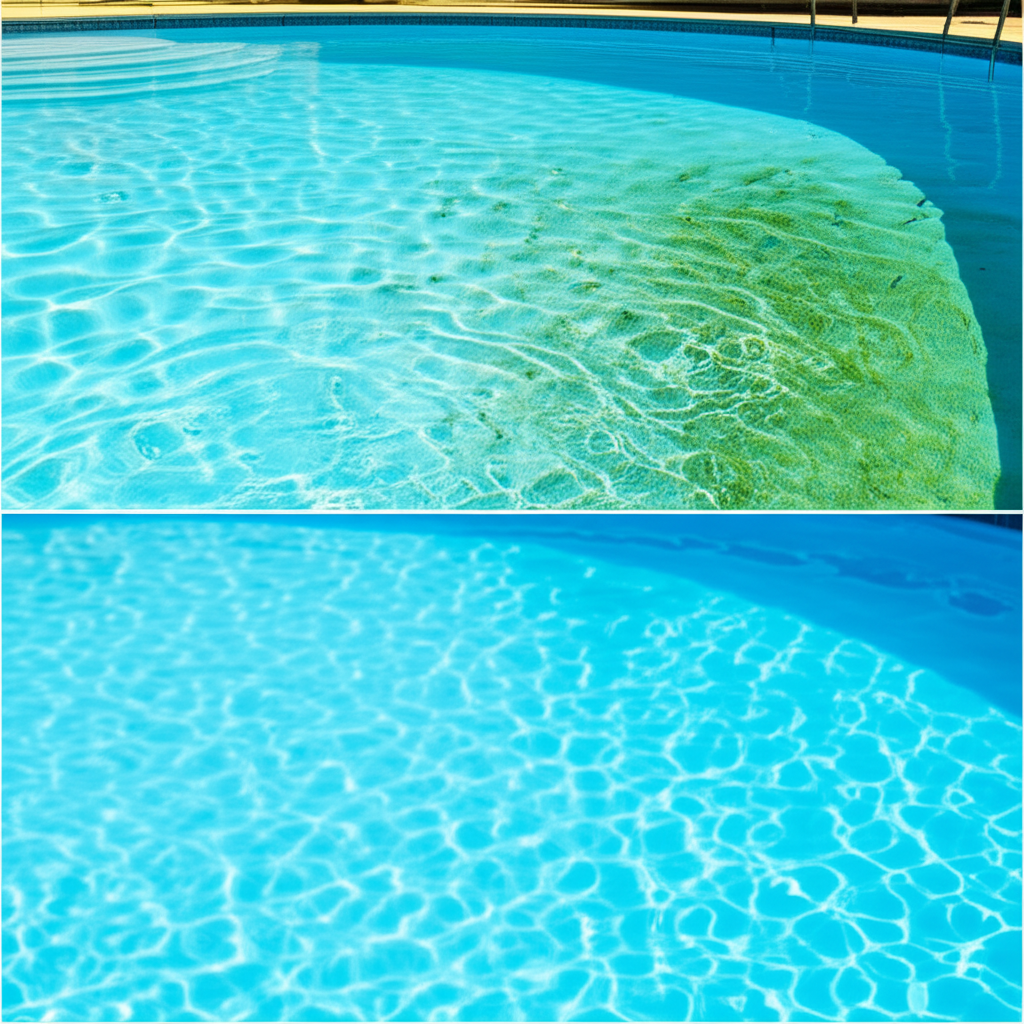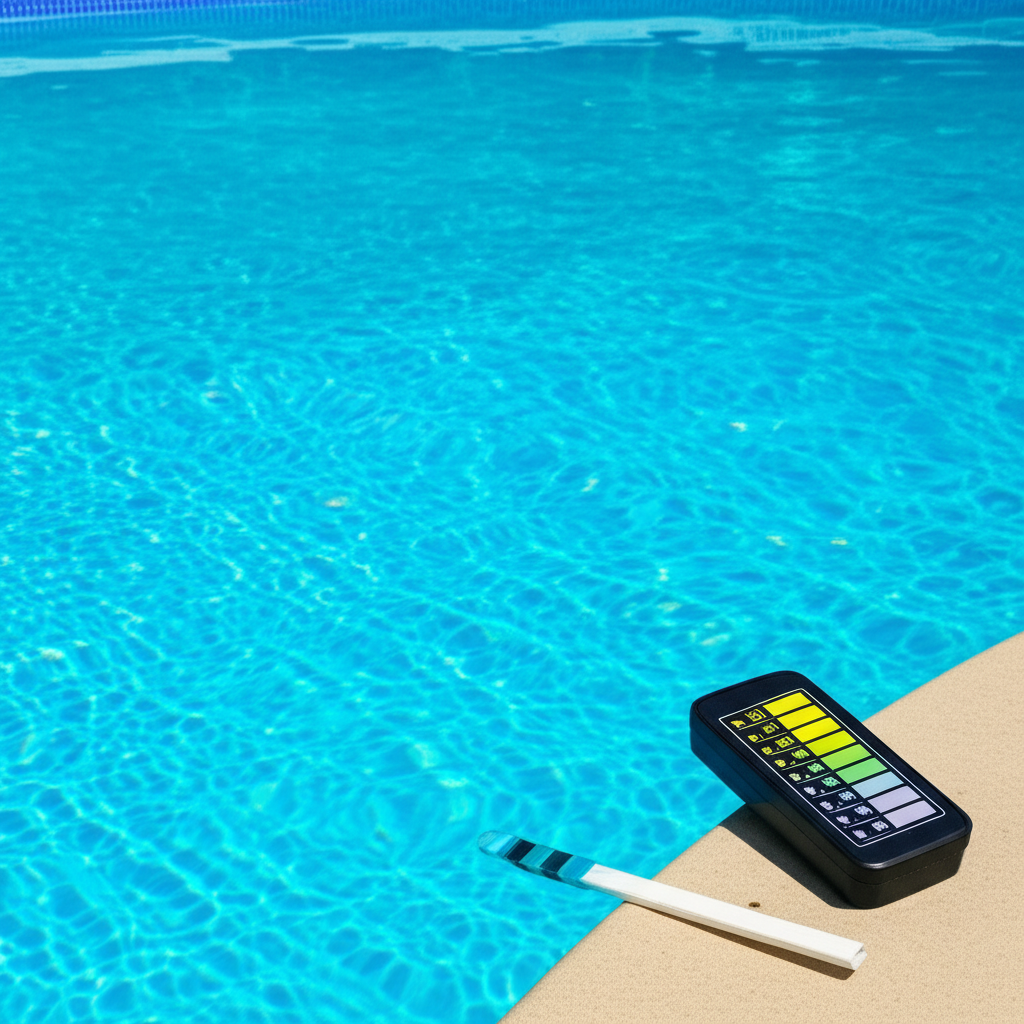- Overlooking Water Chemistry Fundamentals
- Inconsistent Filtration and Circulation
- Skipping Regular Cleaning Chores
- Ignoring Equipment Maintenance
- Improper Winterization or Opening
- Effectively Avoid Pool Problems
Pool Care Errors are more common than many pool owners realize, leading to frustrations, unsafe swimming conditions, and often, significant financial outlays. Maintaining a pristine swimming pool doesn’t have to be a daunting task, but it does require consistency and an understanding of the common pitfalls to avoid. By knowing what these mistakes are and how to counteract them, you can ensure your backyard oasis remains sparkling, healthy, and a source of relaxation rather than stress.
Overlooking Water Chemistry Fundamentals
One of the most frequent and impactful pool care errors is neglecting water chemistry. Your pool water isn’t just H2O; it’s a delicate balance of chemicals that need regular monitoring and adjustment.
pH Imbalance: Both high and low pH levels can cause problems. Low pH can lead to etching of surfaces, corrosion of equipment, and irritate swimmers’ eyes and skin. High pH reduces chlorine effectiveness, causes cloudy water, and can lead to scale formation.
Insufficient Chlorine: Chlorine is your primary sanitizer. Too little chlorine allows algae, bacteria, and other contaminants to flourish, turning your pool green and unhealthy.
Total Alkalinity and Calcium Hardness: These parameters are crucial for buffering pH and preventing corrosion or scaling. Ignoring them makes it harder to maintain stable pH.
Testing Infrequently: Relying on guesswork or testing only once a month is a recipe for disaster. Water chemistry can change rapidly due to sunlight, swimmer load, and weather.
The consequence of neglecting water chemistry isn’t just an unsightly pool; it can lead to health risks for swimmers and costly damage to your pool’s structure and equipment over time.
Inconsistent Filtration and Circulation
Your pool’s filter and pump are its kidneys, essential for removing debris and circulating treated water. Many owners make the mistake of not running their pump long enough, often to save on electricity. However, an under-filtered pool will quickly become cloudy and susceptible to algae blooms, forcing you to use more chemicals than necessary. A general rule of thumb is to run your pump for at least 8-12 hours a day, ensuring all the water has passed through the filter. Furthermore, neglecting to backwash or clean your filter according to manufacturer guidelines reduces its efficiency, leading to poorer water quality and increased strain on your pump.
Skipping Regular Cleaning Chores
While your filtration system handles microscopic particles, physical debris also needs attention. Ignoring basic cleaning tasks like skimming, vacuuming, and brushing is a common mistake that quickly degrades water quality.
Skimming: Leaves, bugs, and other floating debris introduce organic matter into your pool, which consumes chlorine. Daily skimming reduces the organic load on your filter and chemicals.
Vacuuming: Dirt, sand, and other particulate matter settle at the bottom. Weekly vacuuming prevents this buildup from becoming a haven for algae and makes your filter’s job easier.
Brushing: Algae spores often cling to pool surfaces, especially in shady spots or corners. Regular brushing dislodges these spores, allowing the chlorine to kill them before they bloom.
These seemingly small tasks are pivotal in reducing the workload on your chemicals and filtration system, ultimately helping you avoid pool problems.
Ignoring Equipment Maintenance
Your pool equipment represents a significant investment, and ignoring its maintenance is a costly error.
Pump Baskets & Skimmer Baskets: Allowing these to fill up with debris restricts water flow, forcing your pump to work harder and potentially shortening its lifespan. Empty them regularly.
Filter Checks: Beyond backwashing, sand filters need their sand replaced every 5-7 years, while DE filters require recharging with new DE powder and periodic disassembly for grid cleaning. Cartridge filters need to be removed and hosed down frequently. A dirty or inefficient filter struggles to keep your water clean.
Heater Maintenance: If you have a pool heater, it too requires regular inspection for optimal performance and efficiency, especially before seasonal use.
* Leaks: Small leaks can become big problems, leading to water loss and structural damage. Ignoring signs of a leak – like constantly needing to add fresh water – can lead to expensive repairs.
Proactive equipment care extends the life of your systems and prevents unexpected breakdowns.
Improper Winterization or Opening
For those in colder climates, improper winterization can lead to catastrophic damage from freezing water expanding in pipes, filters, and pumps. Failing to balance water chemistry, thoroughly clean the pool, drain lines, and correctly cover the pool can result in a challenging and expensive spring opening. Conversely, a rushed or incorrect spring opening can lead to green water, overloaded filters, and an unpleasant start to the swimming season. Proper seasonal preparation is key to protecting your investment and simplifying the process.
Effectively Avoid Pool Problems
The good news is that most pool care errors are easily preventable with a consistent routine and a basic understanding of your pool’s needs.
1. Educate Yourself: Take the time to understand your pool’s specific requirements, including its volume, equipment, and how different chemicals interact.
2. Test Regularly: Invest in a good quality test kit and use it frequently (at least 2-3 times a week, more if the pool is heavily used or after rain). Keep a log of your readings and adjustments.
3. Stick to a Schedule: Establish a routine for skimming, vacuuming, brushing, and emptying baskets. Consistency is more effective than sporadic bursts of intense cleaning.
4. Listen to Your Pool: Pay attention to the look, feel, and smell of your water. Cloudy water, slick surfaces, or an unusual odor are all signs that something is amiss.
5. Don’t Hesitate to Seek Professional Help: While DIY maintenance is empowering, some issues are best left to the experts. If you encounter a problem you can’t identify or resolve, a professional pool technician can save you time, money, and headaches in the long run.
By understanding and actively avoiding these common pool care errors, you can transform your pool maintenance routine from a chore into a seamless process. The result will be a consistently clean, safe, and inviting pool, ready for enjoyment without the burden of costly and avoidable repairs.



